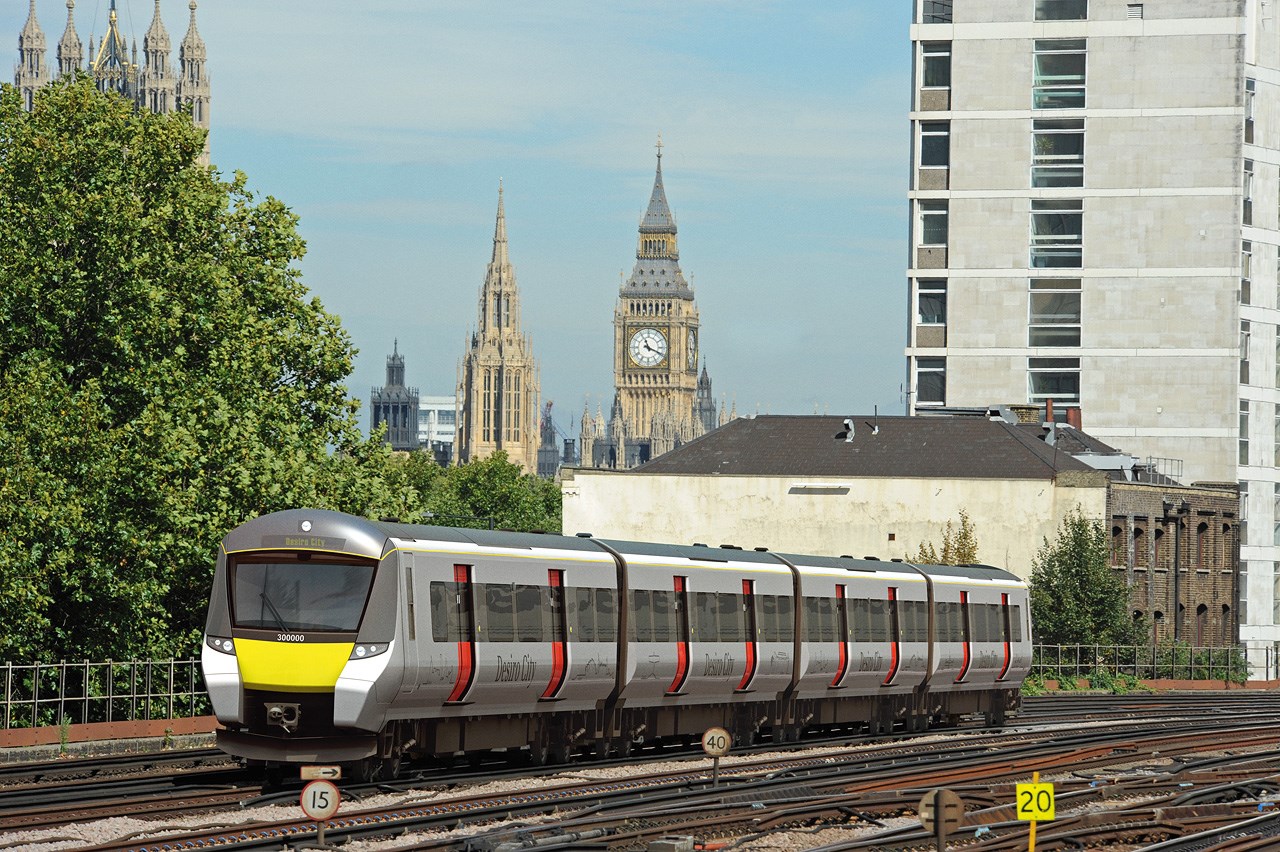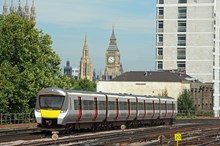London, 2013-Mar-18
Desiro City train in London
The report, one of the most comprehensive recent studies of London’s transport system, was written by Professor David Begg, commissioned by Siemens and uses data gathered from a survey of 3,500 London transport professionals. It highlights the following elements of London’s transport system as ‘world class’:
- the performance of the transport system during London 2012;
- the extensive and often undervalued bus network;
- the record high performance of the Tube and the good progress made in upgrading a 150 year old asset;
- the impressive transformation of the London Overground Network;
- customer information, marketing and ticketing;
- traffic flow management on the road network; congestion charging and the Low Emission Zone.
The report also outlines potential areas for improvement with a critical assessment of cycling noting that despite rapid growth, travel by bicycle still only accounts for 2% of journeys. At the same time, cyclists account for 20% of road casualties, a number which rose by a staggering 50% between 2006 and 2011.
The report also raises concerns about London’s poor air quality, which causes almost 4.500 premature deaths per year. While current policies have successfully lowered CO2 emissions, London needs to press on with reducing overall traffic
levels, building the infrastructure for electric car use and increasing the use of public transport, walking and cycling. Professor Begg calls for more road space for cyclists, pedestrians and buses as well as the re-introduction of a “roads hierarchy” to encourage growth of those sustainable forms of transport.
Professor David Begg said: “Over the past 12 years there has been a transformation in the quality and capacity of transport across the capital and despite room for improvement in some areas, transport services in the capital are now running at a very high standard. Our survey shows that many transport professionals in the Capital agree, with 73% rating many elements of the system as either excellent or very good. Continued investment in London’s world class transport system is imperative to prevent any decline.”
Steve Scrimshaw, Managing Director Siemens Rail Systems UK and NW Europe, commented: “I am delighted that Siemens has been able to support Professor Begg’s study into the performance of London’s vital transport arteries, something that is fundamental to economic development. Our involvement in London’s transport infrastructure is extensive. Our trains transport passengers into the city on a daily basis, our involvement in the congestion charging, low emission zone and traffic management platforms help Transport for London to effectively manage, monitor and channel road users. We are also significantly involved in large infrastructure projects such as Thameslink and Crossrail. Siemens is intrinsically linked to London and we are committed to helping the city’s leaders find solutions to the challenges London faces both now and into the future.”
Notes to the editor:
Research for the report was conducted through surveying 3,500 London transport professionals combined with a focused roundtable event and in-depth interviews with 22 of the most senior transport commentators, policy makers and industry leaders.
Contact for journalists:
Siemens plc
Silke Thomson
Tel: 07808 822 780
Email : silke.thomson-pottebohm@siemens.com
Download the press release and press pictures, here: www.siemens.co.uk/press
For further information and copy of the full report please see:
http://w3.siemens.com/topics/global/en/tube150/Pages/home.aspx
Follow us on Twitter at: www.twitter.com/siemensuknews
Siemens plc
Siemens was established in the United Kingdom 170 years ago and now employs around 13,520 people in the UK. Last year’s revenues were £3.2 billion*. As a leading global engineering and technology services company, Siemens provides innovative solutions to help tackle the world’s major challenges, across the key sectors of energy, industry, infrastructure & cities and healthcare. Siemens has offices and factories throughout the UK, with its headquarters in Frimley, Surrey. The company’s global headquarters is in Munich, Germany. For more information, visit www.siemens.co.uk
* Data includes intercompany revenue. Data may not be comparable with revenue reported in annual or interim reports.
The Siemens Infrastructure & Cities Sector (Munich, Germany) with approximately 90,000 employees, focuses on sustainable technologies for metropolitan areas and their infrastructures. Its offering includes products, systems and solutions for intelligent traffic management, rail-bound transportation, smart grids, energy efficient buildings, and safety and security. The Sector comprises the divisions Building Technologies, Low and Medium Voltage, Mobility and Logistics, Rail Systems and Smart Grid. For more information, visit http://www.siemens.com/infrastructure-cities




